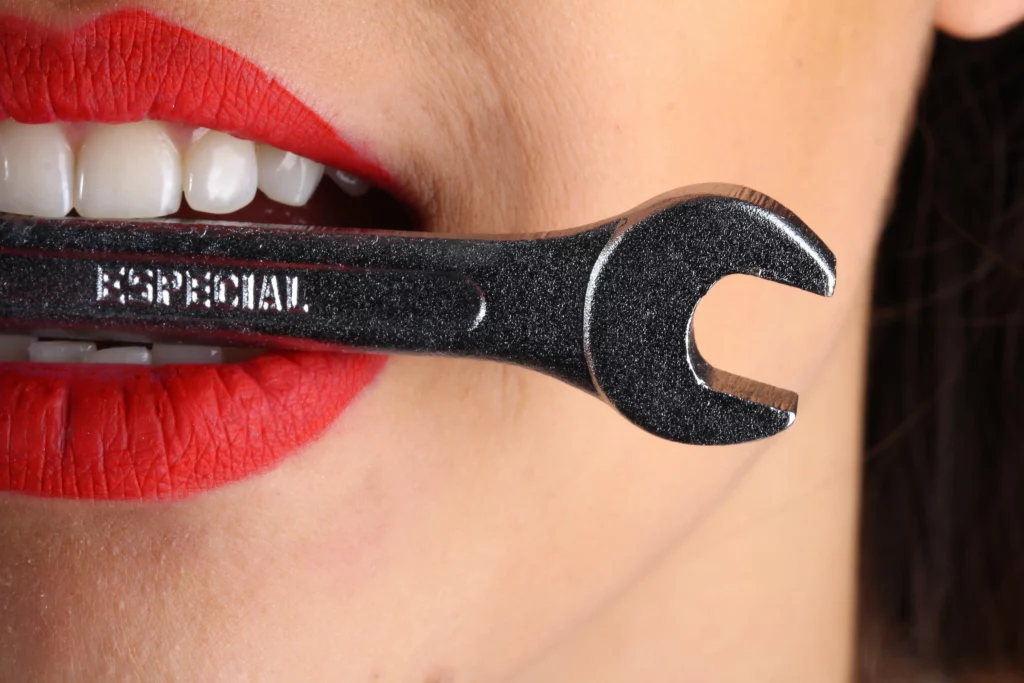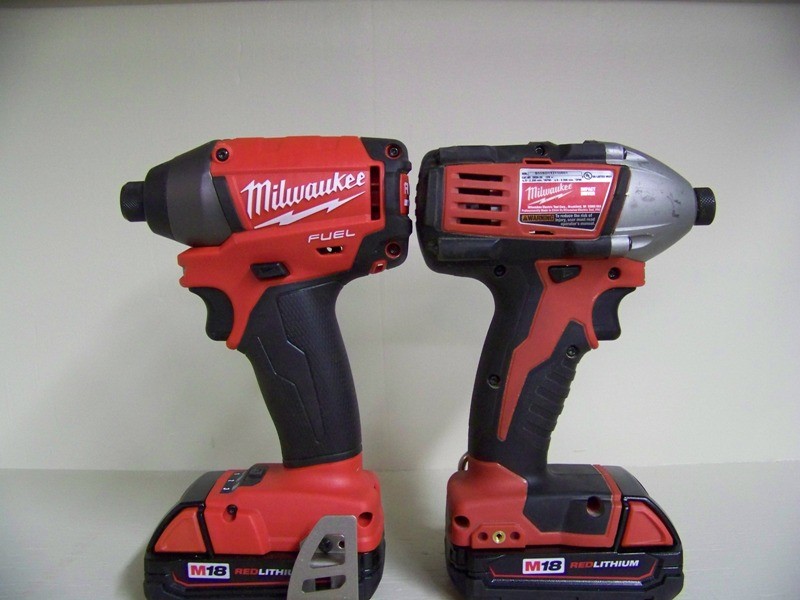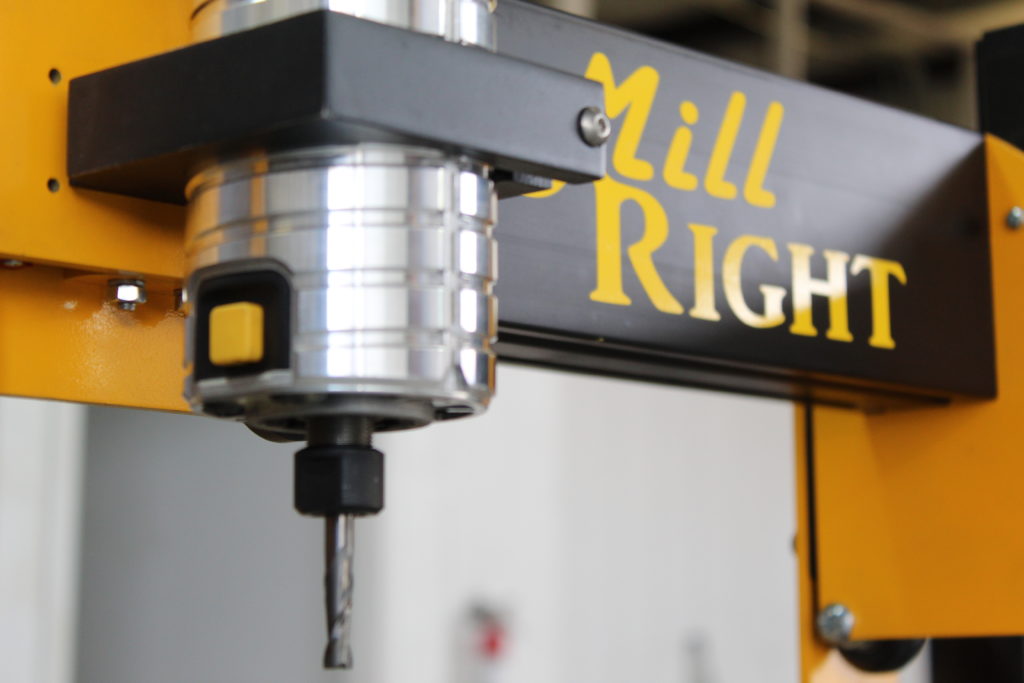Woodworking isn’t just a craft; it’s a symphony of tools that transform raw timber into works of art. In this comprehensive guide, we’ll explore over 35 essential woodworking tools, breaking down their names, descriptions, uses, varieties, typical prices, and maintenance tips. Get ready to unleash your inner lumber virtuoso!
What's in this article?
Toggle1. Hand Saws – Precision in Every Stroke
Coping Saw

Description: A compact saw with a thin blade, perfect for intricate and curved cuts.
Uses: Ideal for detailed work like coping joints and intricate shapes.
Varieties: Some have adjustable frames for different blade angles, offering versatility. Pros: Precision cutting. Cons: Limited to thinner materials.
Typical Price: $20 – $50
Maintenance: Keep the blade sharp, and tighten any loose parts for optimal performance.
2. Power Saws – From Rip Cuts to Fine Detailing
Circular Saw
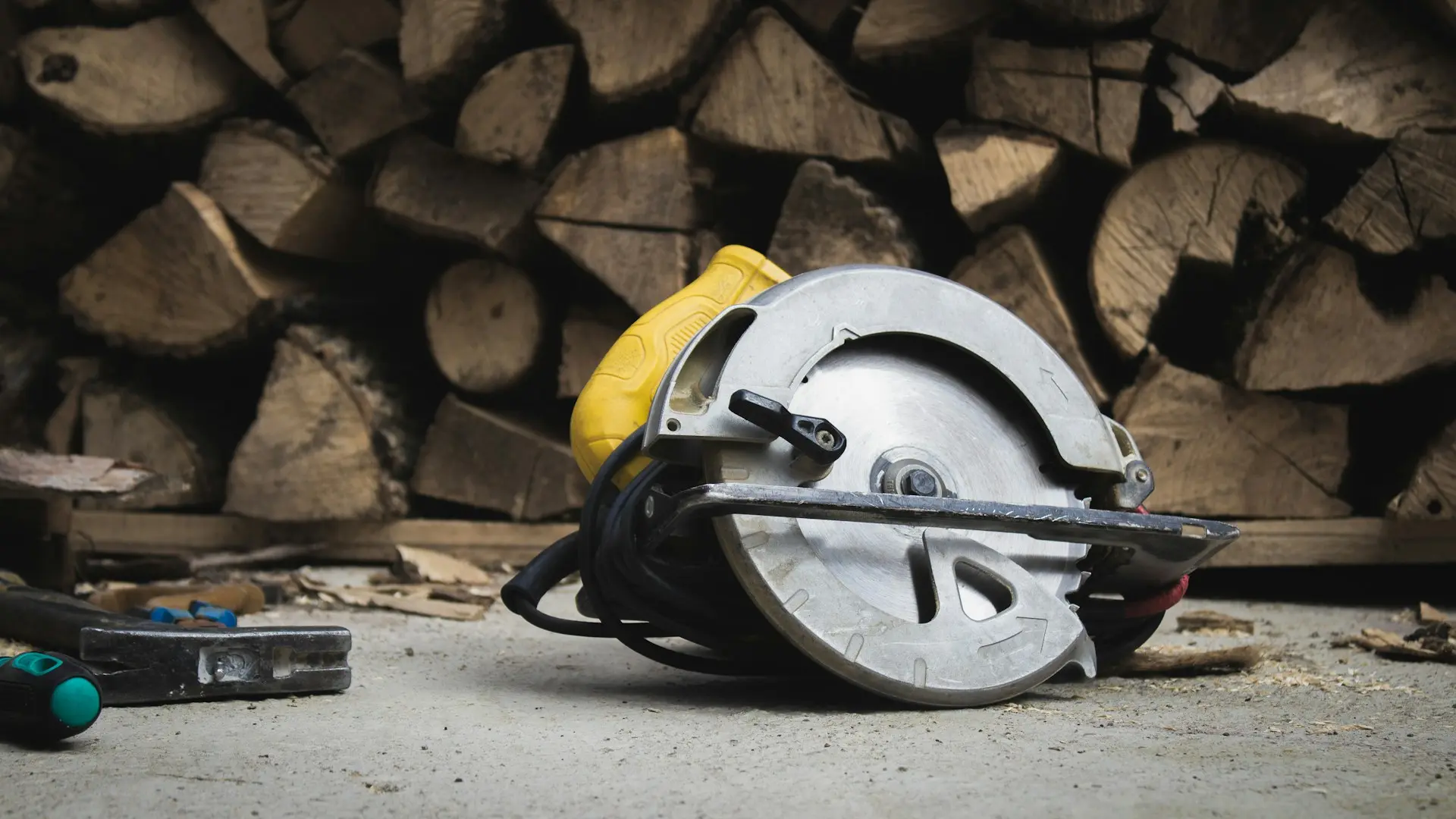
Description: A versatile power saw with a circular blade for straight and beveled cuts. You may look through our recent list of gas chainsaws and of small chainsaws.
Uses: Essential for ripping and cross-cutting lumber, especially for large projects.
Varieties: Corded and cordless options, with pros like portability for the latter, but cons like limited battery life.
Typical Price: $50 – $200
Maintenance: Regularly check the blade alignment, and keep the blade clean for efficient cutting.
Jigsaw

Description: A handheld power saw with a reciprocating blade for intricate and curved cuts.
Uses: Perfect for cutting curves, circles, and complex shapes in wood.
Varieties: Corded and cordless models, each with pros like versatility and cons like limited power.
Typical Price: $30 – $150
Maintenance: Ensure the blade is sharp, and regularly check for any wear on the base plate.
3. Planes – Smoothing the Rough Edges
Jack Plane
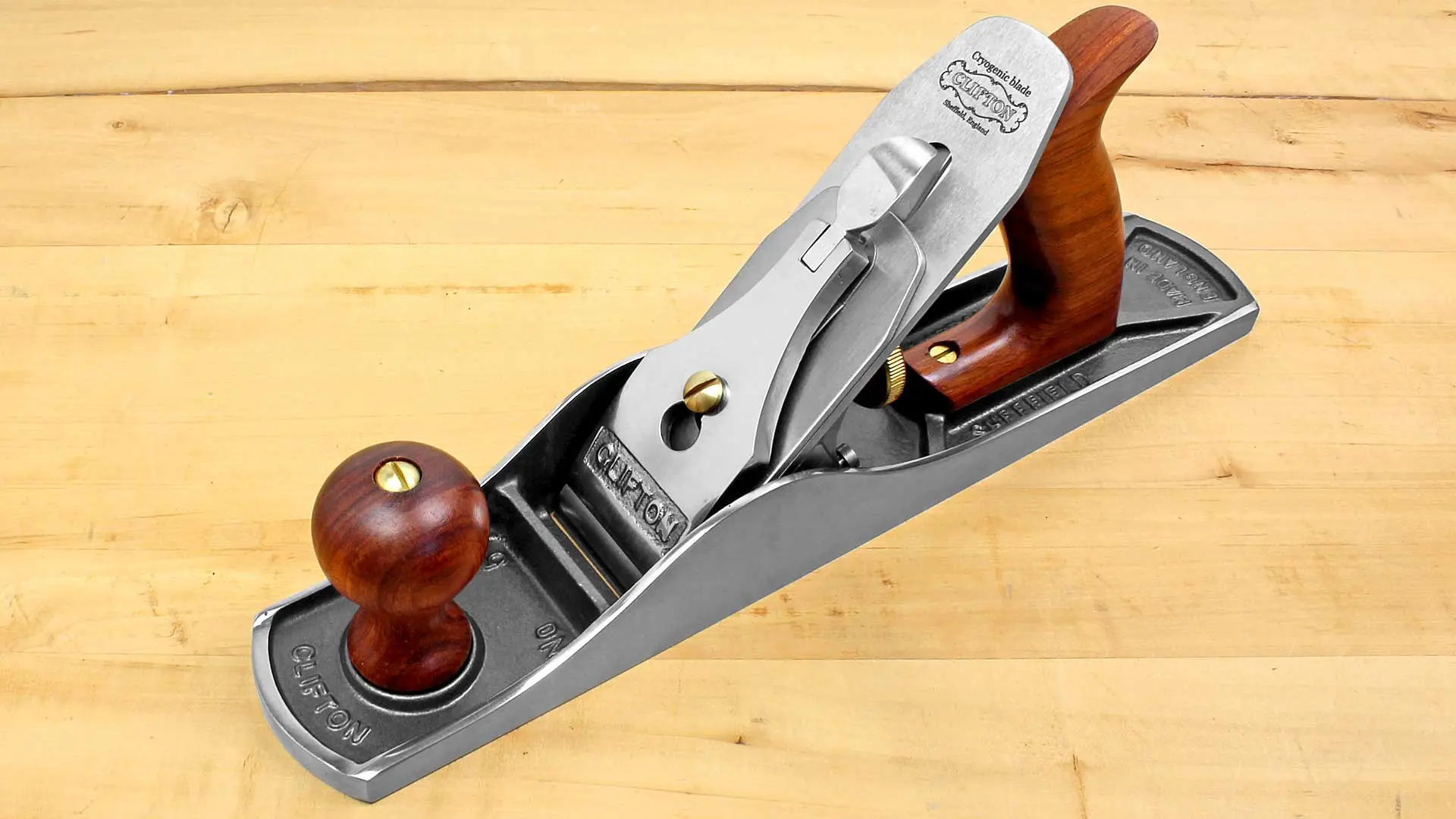
Description: A long, flat-bottomed tool with an adjustable blade for smoothing and flattening surfaces.
Uses: Perfect for leveling rough timber and reducing thickness.
Varieties: Bench planes, like the jointer and smoother, each with unique pros and cons.
Typical Price: $40 – $150
Maintenance: Sharpen the blade regularly and check for any rust on the plane body.
Block Plane
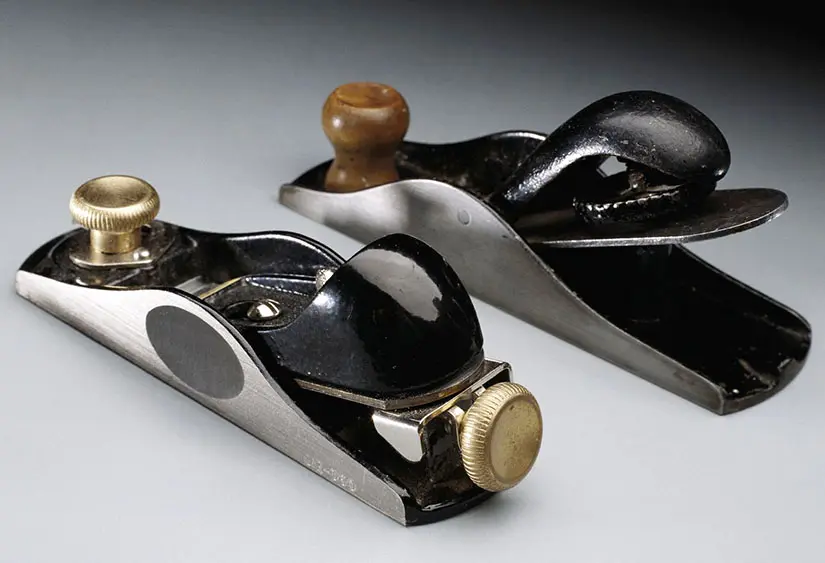
Description: A smaller, handheld plane for smoothing end grain and chamfering edges.
Uses: Ideal for small projects and touch-ups, providing precise control.
Varieties: Low-angle and standard-angle planes, each with pros like versatility but cons like limited size.
Typical Price: $20 – $80
Maintenance: Keep the blade sharp, and lubricate any moving parts regularly.
4. Chisels – Sculpting Wood with Precision
Bench Chisel
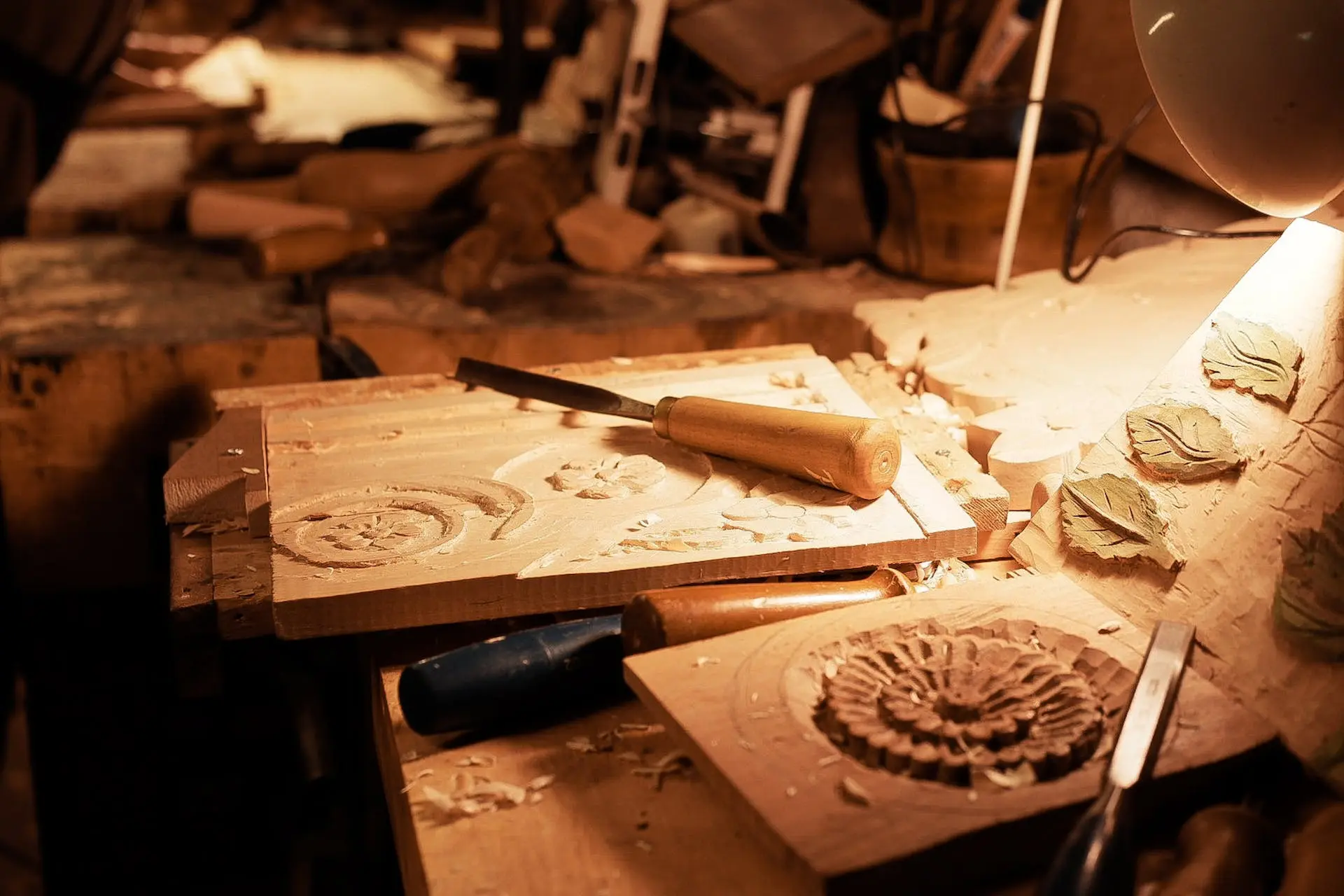
Description: A beveled-edge tool for precise cutting, carving, and shaping wood.
Uses: Ideal for cleaning joints, carving intricate details, and general shaping.
Varieties: Bevel-edged and mortise chisels, each with its pros and cons in specific applications.
Typical Price: $10 – $50
Maintenance: Regularly sharpen the blade, and keep the handle clean and polished.
Mortise Chisel
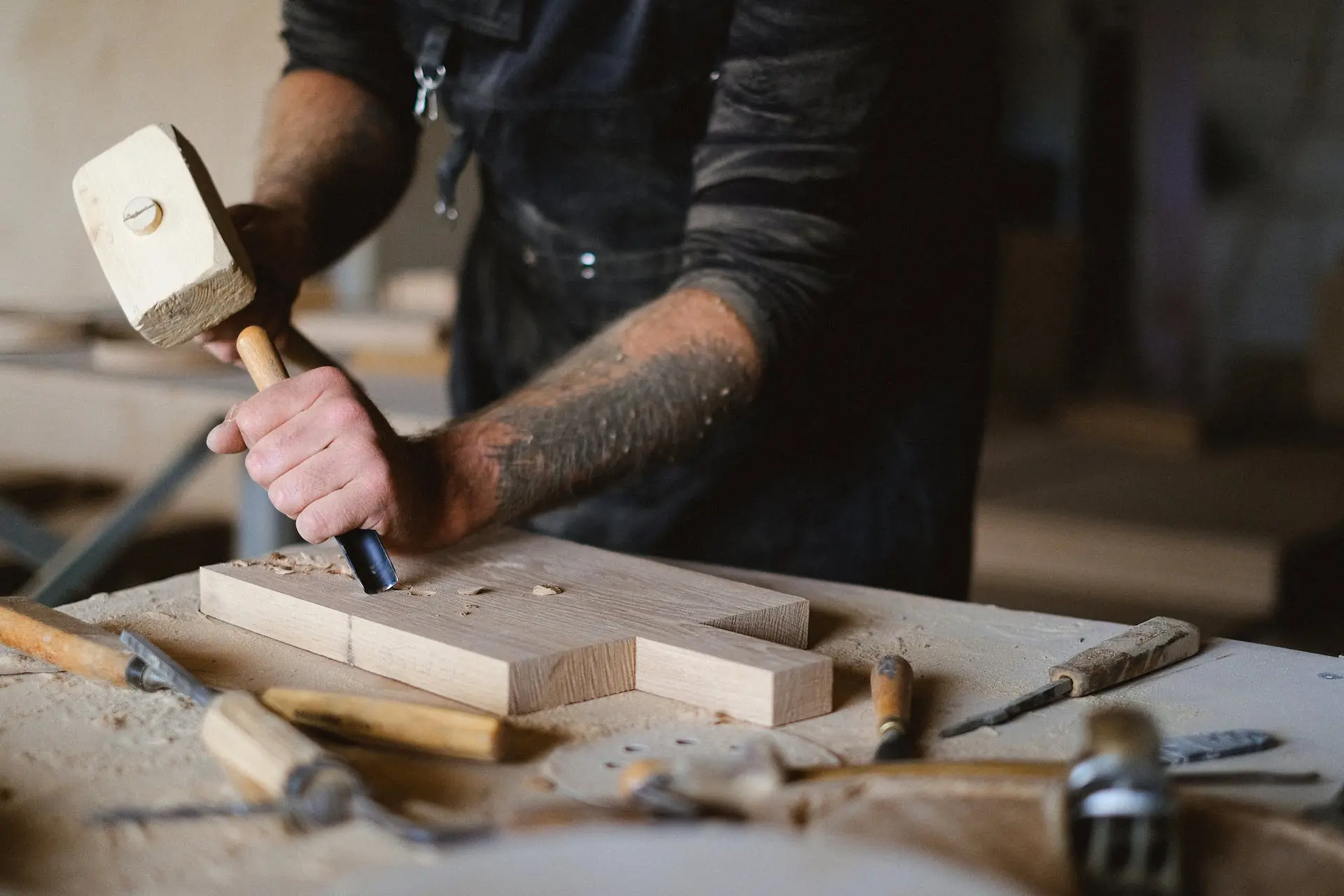
Description: A thicker chisel designed for chopping and levering out waste material in mortise joints.
Uses: Perfect for heavy-duty tasks, creating clean and precise mortises.
Varieties: Straight and fishtail designs, each with pros like strength but cons like limited versatility.
Typical Price: $20 – $60
Maintenance: Regularly sharpen the blade, and ensure the handle is securely attached.
5. Mallets – Striking the Perfect Balance
Wooden Mallet
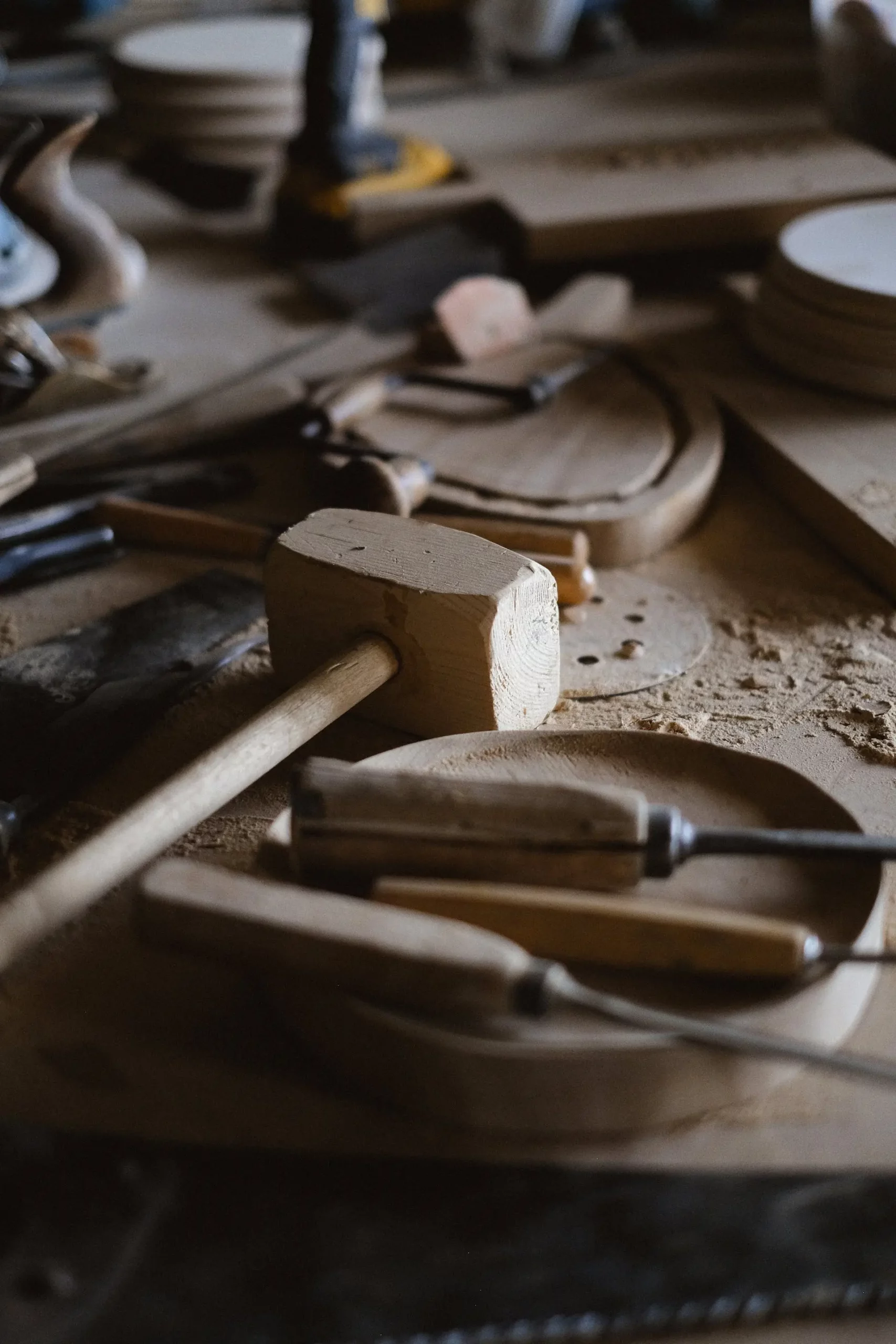
Description: A heavyweight wooden tool for driving chisels and carving tools.
Uses: Provides controlled force without damaging the tools or work surface.
Varieties: Rubber and plastic mallets are alternatives, with pros like non-marring surfaces and cons like less force.
Typical Price: $15 – $40
Maintenance: Ensure the striking face is smooth, and replace any damaged or splintered mallet heads.
Dead Blow Hammer
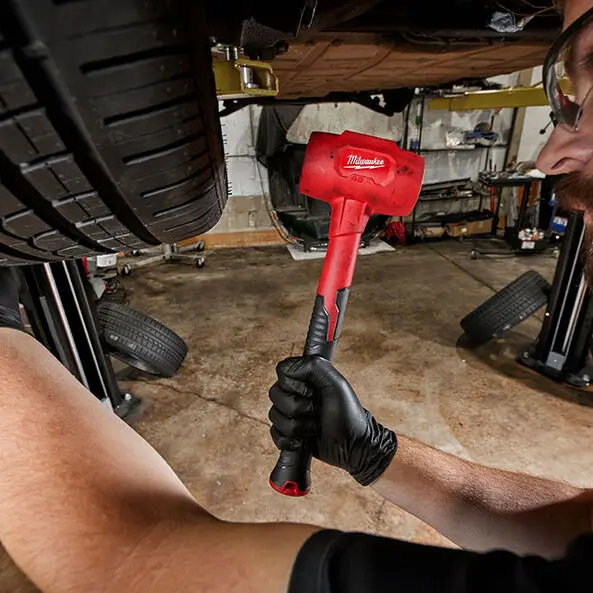
Description: A hammer filled with shot, reducing rebound and delivering a controlled strike.
Uses: Ideal for assembling joints, driving chisels, and other tasks requiring precise force.
Varieties: Soft and hard-faced options, with pros like reduced vibration but cons like less force.
Typical Price: $20 – $60
Maintenance: Check for any damage to the hammer head, and replace the shot if necessary.
6. Measuring and Marking Tools – Precision is Key
Combination Square
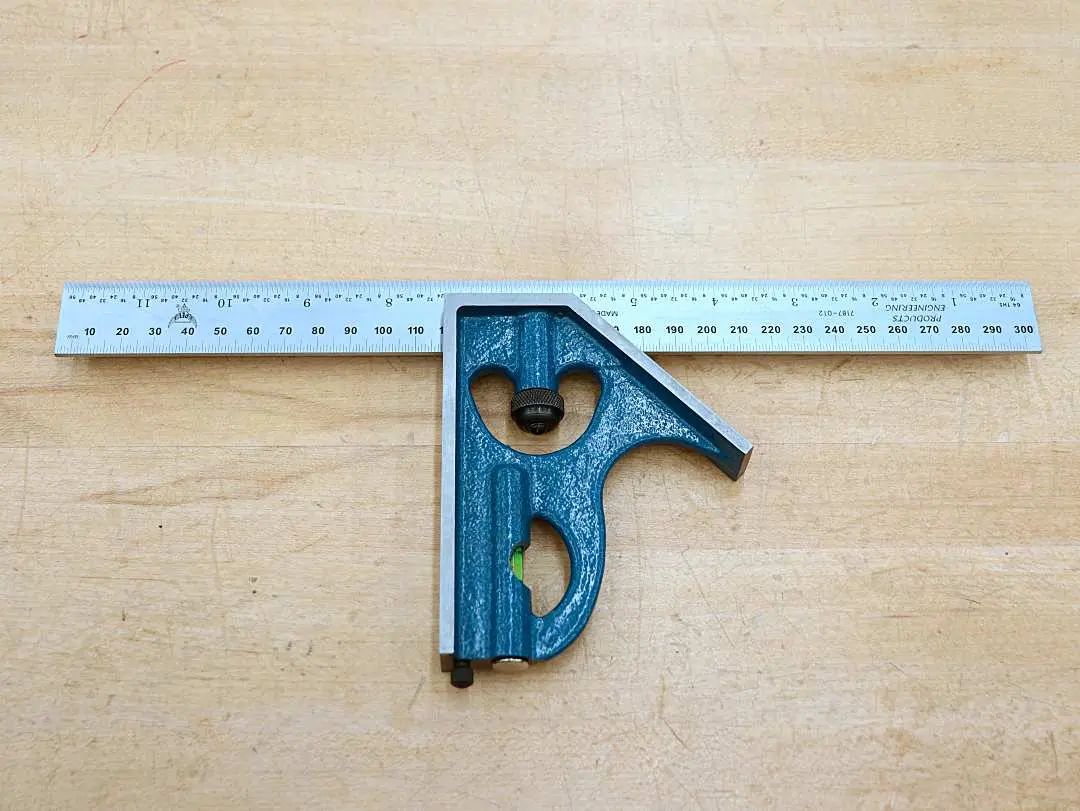
Description: A versatile measuring tool with a ruler and square for accurate measurements and marking.
Uses: Ensures precise angles and measurements during the woodworking process.
Varieties: Digital squares for quick measurements, with pros like accuracy but cons like battery reliance.
Typical Price: $20 – $60
Maintenance: Regularly check the squareness and lubricate moving parts for smooth operation.
Marking Gauge
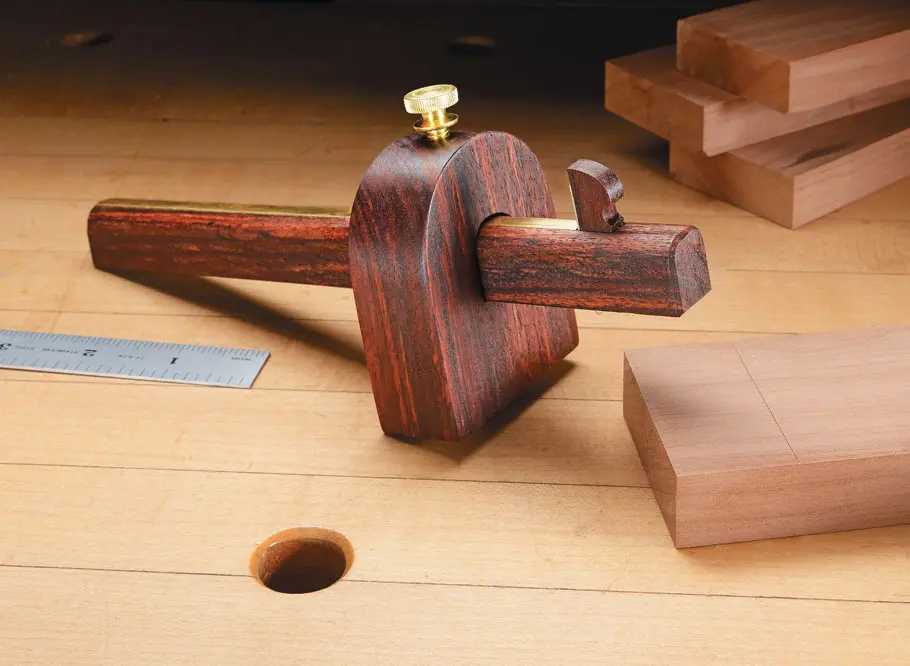
Description: A tool with a fence and an adjustable marker for creating parallel lines on wood surfaces.
Uses: Essential for marking out joinery and ensuring accurate cuts.
Varieties: Wheel and pin gauges, with pros like precision but cons like limited marking depth.
Typical Price: $15 – $40
Maintenance: Keep the blade sharp, and ensure the fence is securely tightened.
7. Drills – Boring Through Timber with Ease
Cordless Drill

Description: A portable power tool with a rotating drill bit for boring holes in wood.
Uses: Essential for drilling holes for screws, dowels, and other fasteners.
Varieties: Corded and cordless drills, each with its pros and cons, like mobility and power source limitations.
Typical Price: $50 – $150
Maintenance: Keep the drill bits sharp, and regularly check for any wear on the chuck.
Forstner Bit Set
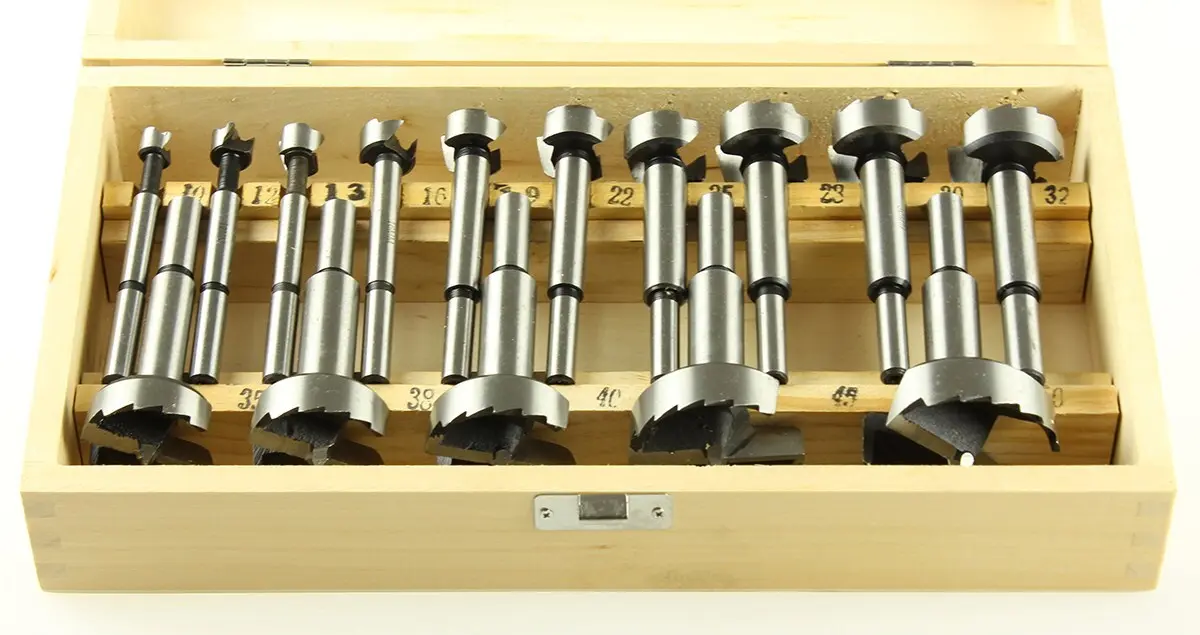
Description: Specialized bits for drilling flat-bottomed holes, often used for creating pocket holes.
Uses: Ideal for woodworking joinery and creating clean, precise holes.
Varieties: Various sizes in a set, with pros like precision but cons like limited hole depth.
Typical Price: $20 – $60
Maintenance: Keep the bits clean, and sharpen them when they start to lose their cutting edge.
8. Sanders – Smoothing Surfaces to Perfection
Random Orbital Sander
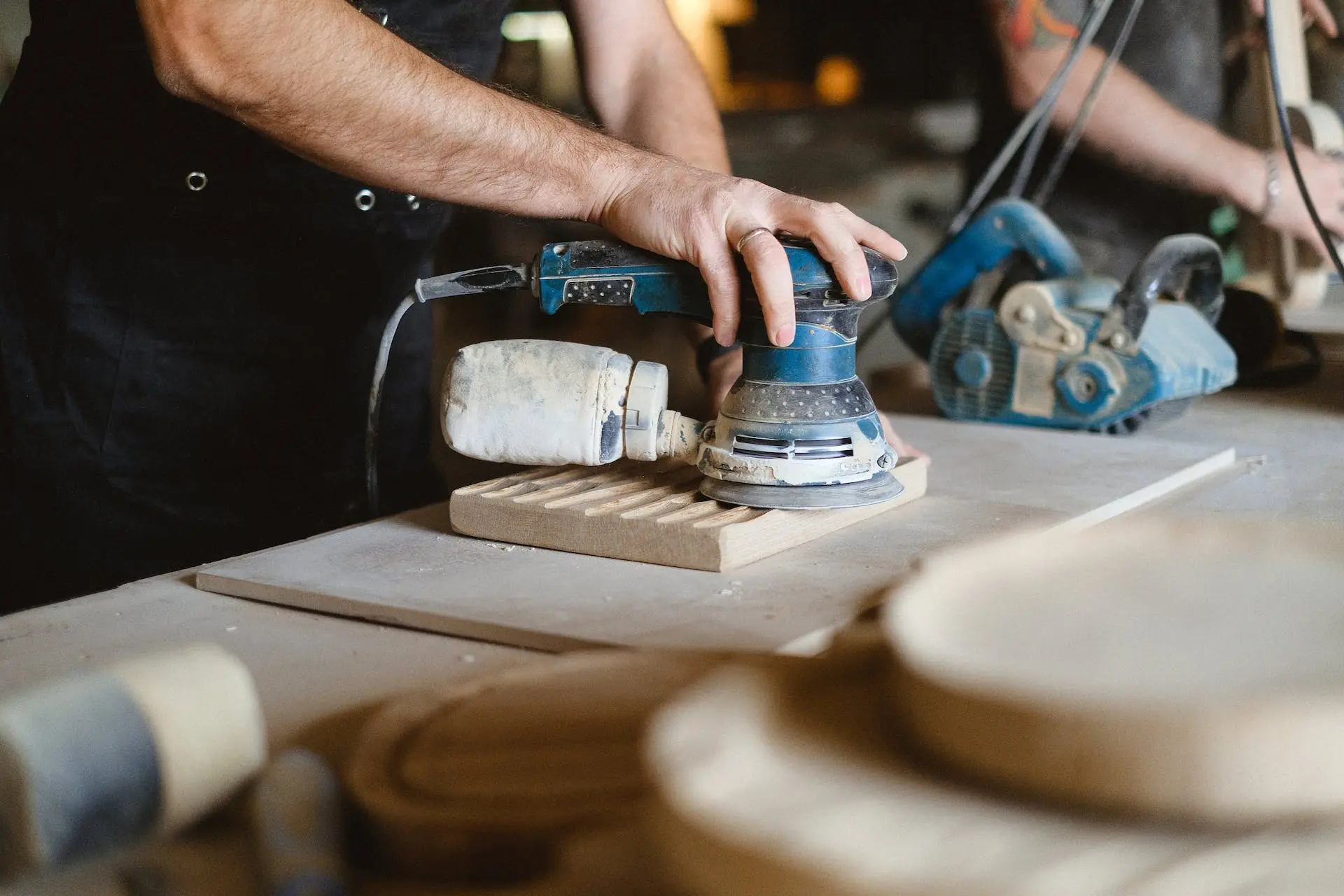
Description: A power tool with a round sanding pad for fast and efficient material removal.
Uses: Ideal for smoothing rough surfaces and preparing wood for finishing.
Varieties: Belt sanders for larger projects, with pros like speed but cons like aggressive material removal.
Typical Price: $50 – $200
Maintenance: Regularly clean the sanding pad, and replace worn-out sandpaper.
Detail Sander
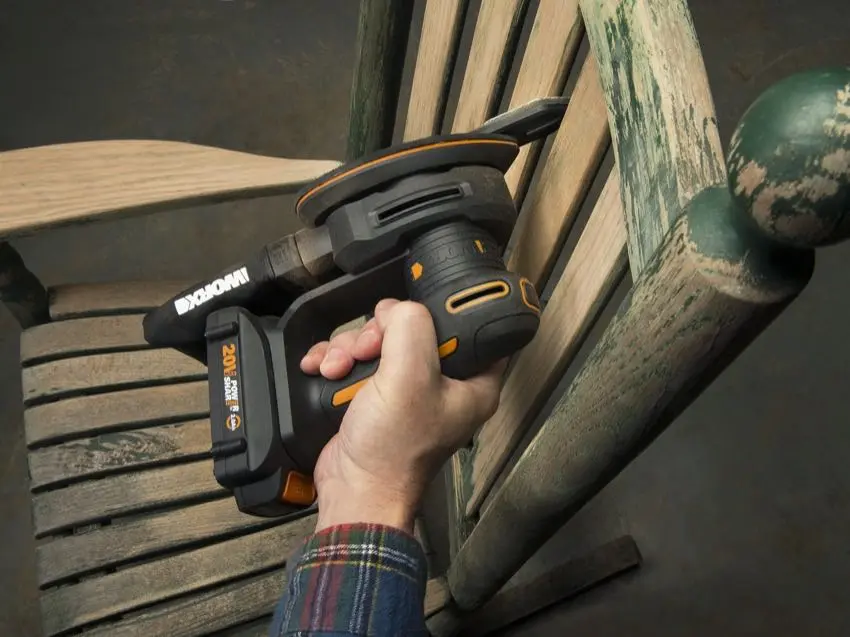
Description: A compact sander with a triangular pad for reaching tight spaces and corners.
Uses: Perfect for intricate sanding in small areas, ensuring a smooth finish.
Varieties: Corded and cordless models, with pros like versatility but cons like limited power.
Typical Price: $30 – $100
Maintenance: Keep the sandpaper clean, and ensure the pad is securely attached.
9. Lathes – Turning Timber into Timeless Treasures
Wood Lathe
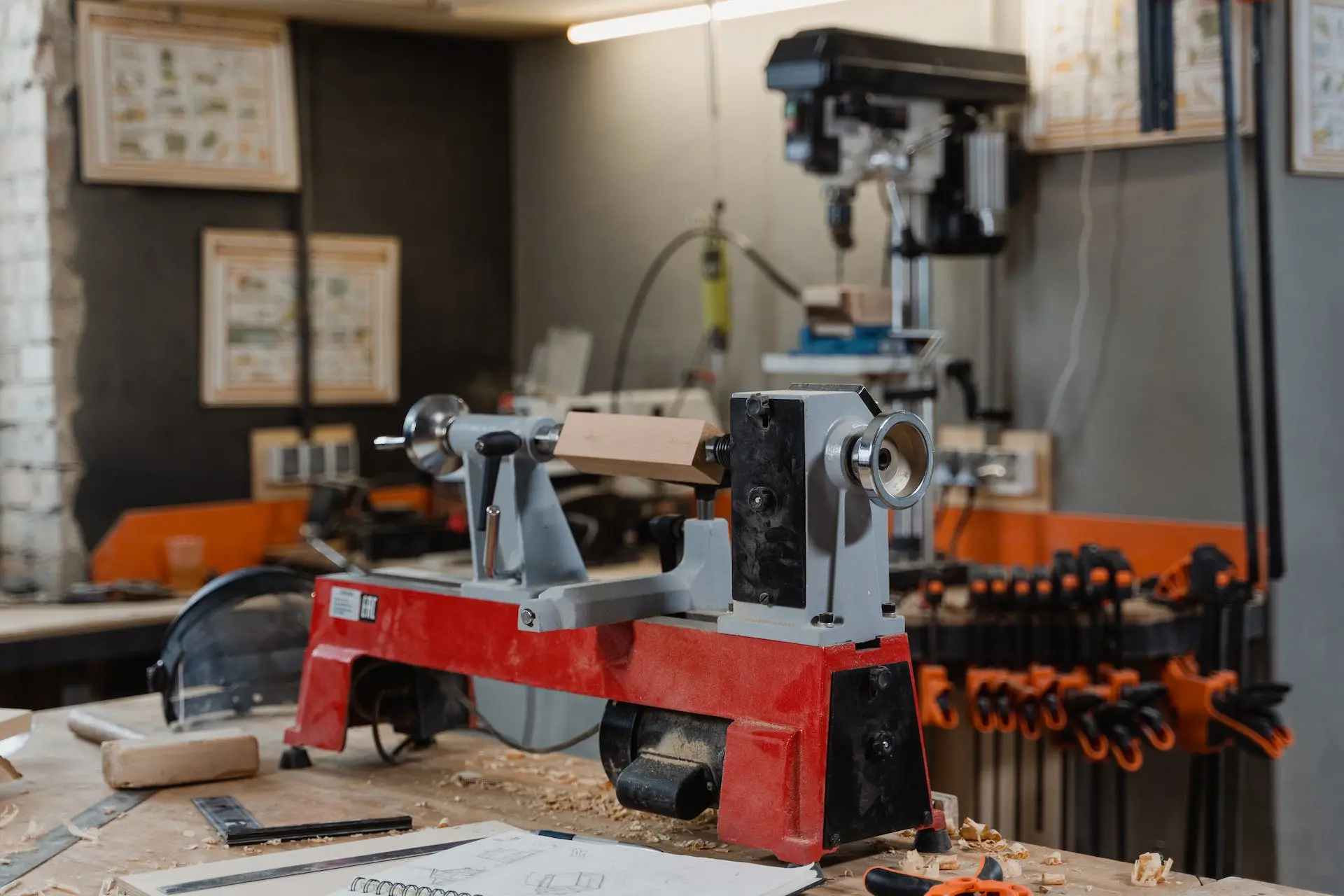
Description: A versatile machine designed for rotating wood, allowing craftsmen to shape, cut, and carve intricate designs.
Uses: Essential for turning wood into cylindrical shapes like table legs, bowls, and decorative spindles.
Varieties: Benchtop and floor-standing lathes, with pros like size and power differences but cons like space requirements.
Typical Price: $200 – $2000
Maintenance: Regularly check the belts, lubricate moving parts, and keep the cutting tools sharp for precise turning.
Lathe Chuck
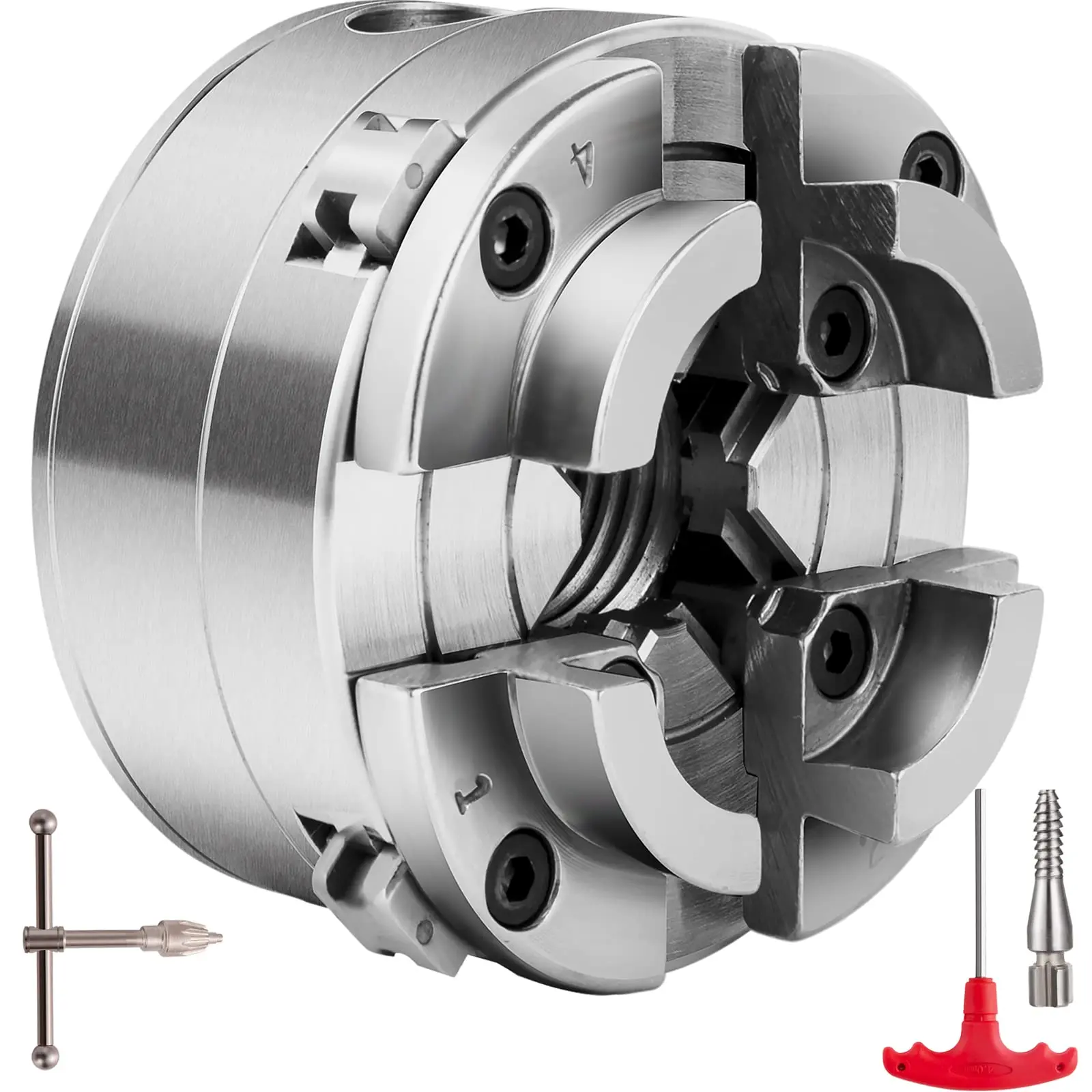
Description: An accessory that holds the wood securely to the lathe spindle, allowing for various gripping methods.
Uses: Provides stability and control during turning, ensuring safety and precision.
Varieties: Four-jaw and three-jaw chucks, each with pros like versatility but cons like complexity.
Typical Price: $50 – $300
Maintenance: Clean the chuck regularly, inspect for any damage, and lubricate moving parts.
Carbide Woodturning Tools
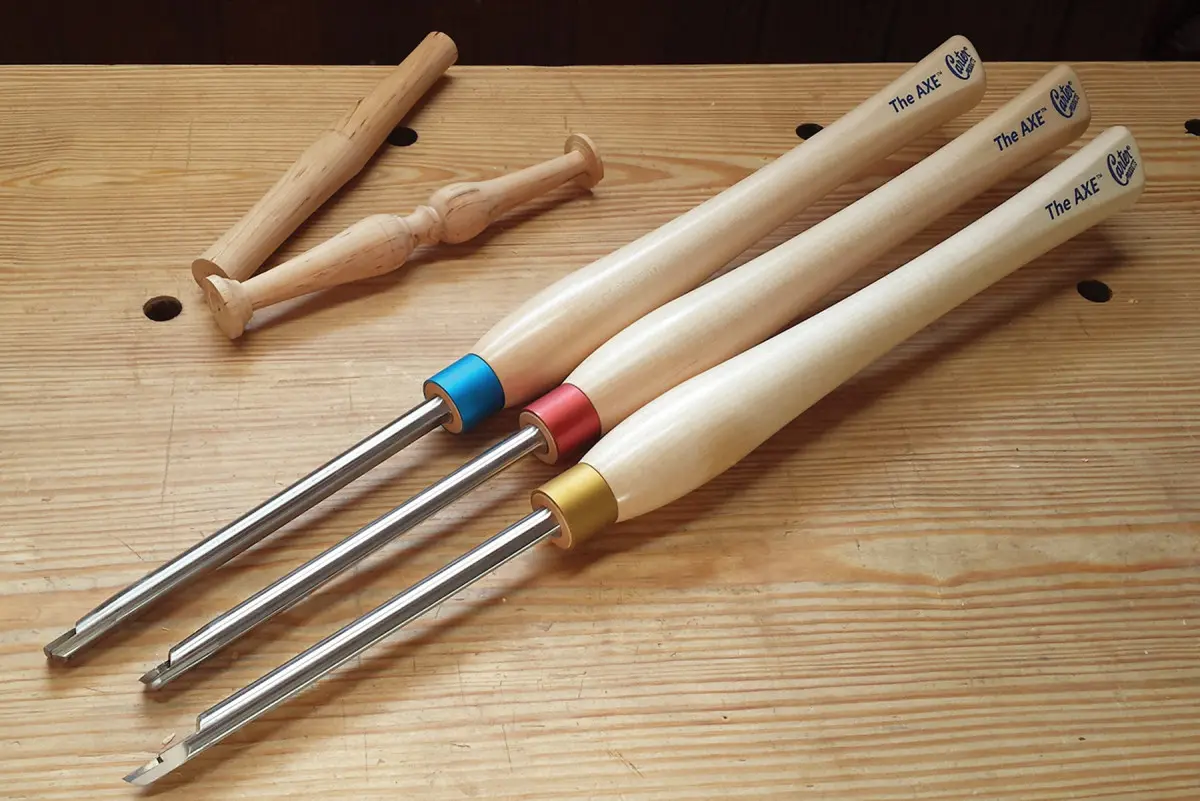
Description: Cutting tools with replaceable carbide tips, offering durability and ease of use for woodturning.
Uses: Ideal for shaping and detailing wood on the lathe, providing clean and precise cuts.
Varieties: Different tool shapes for various applications, with pros like longevity but cons like initial cost.
Typical Price: $50 – $150 per tool
Maintenance: Rotate or replace carbide tips as needed, and sharpen any non-replaceable edges.
In the world of woodworking, the lathe stands as a dynamic powerhouse, transforming chunks of timber into elegant masterpieces. From creating symmetrical table legs to crafting beautifully turned bowls, the wood lathe is the artisan’s secret weapon. With its various accessories and cutting tools, the lathe opens up endless possibilities for those seeking to add a touch of craftsmanship to their projects. Just remember, as you embark on your woodturning journey, a well-maintained lathe is not just a tool; it’s a portal to the realm of turning timber into timeless treasures. Happy turning!
10. Laser Cutters – Illuminating Precision in Woodworking
In the dazzling world of woodworking, laser cutters emerge as the torchbearers of precision, adding a touch of technological wizardry to the artisan’s toolkit. These machines utilize the power of focused light to carve, etch, and engrave intricate designs into wood, transforming raw timber into bespoke masterpieces with unparalleled accuracy. Conceptually similar to CNC machines, but they deserve their own category.
CO2 Laser Cutter
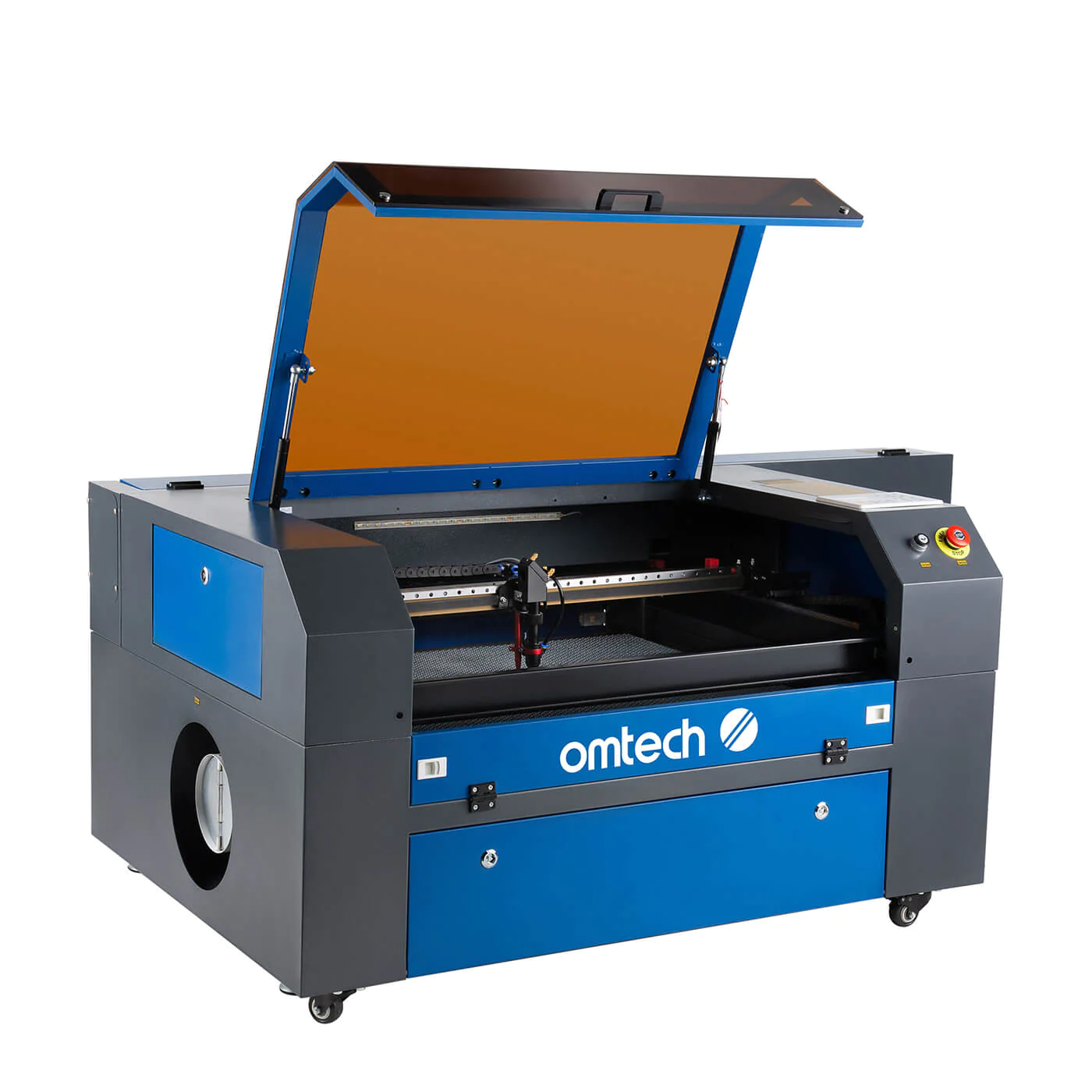
Description: A laser cutter that utilizes a carbon dioxide laser to generate a focused beam of light, capable of cutting and engraving various materials, including wood.
Uses: Ideal for intricate patterns, precise cuts, and detailed engraving on wood surfaces.
Varieties: Desktop and industrial-sized models, each with pros like versatility but cons like varying power levels.
Typical Price: $2,000 – $20,000 (depending on size and power)
Maintenance: Regularly clean the lens and mirrors, align the laser, and ensure proper ventilation for fume extraction.
Fiber Laser Cutter
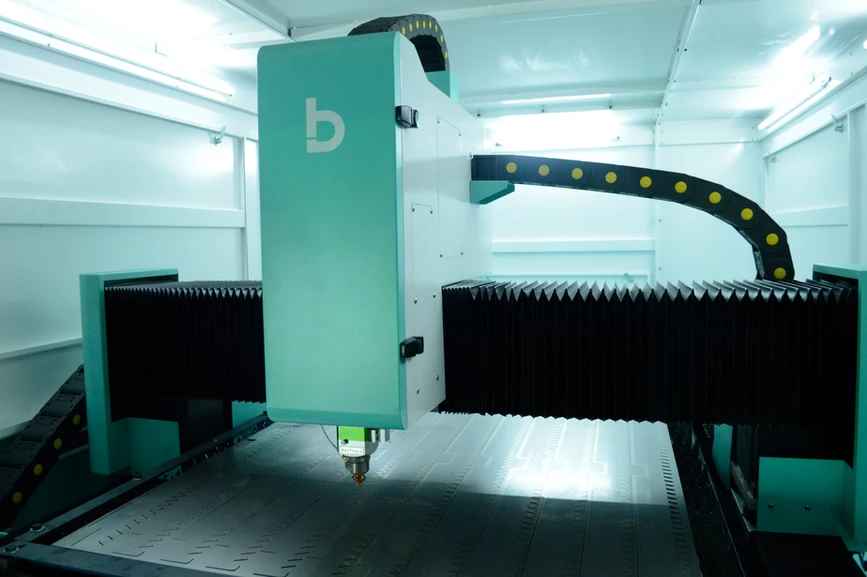
Description: A laser cutter that employs fiber-optic technology to produce a laser beam, offering high precision and speed for cutting and engraving.
Uses: Excellent for fine details, text, and intricate designs on wood surfaces, with the ability to mark metal as well.
Varieties: Compact and industrial-grade models, with pros like speed and accuracy but cons like specific material limitations.
Typical Price: $5,000 – $50,000 (depending on size and power)
Maintenance: Regularly clean the lens and mirrors, and ensure proper calibration for precise cutting.
In the cosmic ballet of woodworking, laser cutters emerge as celestial dancers, bringing precision and creativity into perfect harmony. As the beam of light gracefully navigates the wood’s surface, intricate designs materialize, and woodworking transforms into a realm where technology and craftsmanship coalesce. So, whether you’re etching fine details on a wooden masterpiece or crafting personalized gifts with laser precision, the laser cutter stands as a beacon illuminating the path to woodworking brilliance. Shine on, woodcrafters!
11. Woodworking Accessories – Elevating Craftsmanship
with Finishing Touches
Woodworking is not just about the tools; it’s a dance with accessories that add finesse and functionality to your projects, turning them from ordinary to extraordinary.
Woodworking Apron

Description: A durable and comfortable apron designed to protect your clothes from dust, splinters, and wood shavings during crafting sessions.
Uses: Keeps you clean and organized, with handy pockets for storing small tools and accessories.
Varieties: Canvas and leather aprons, each with pros like durability but cons like weight differences.
Typical Price: $20 – $100
Maintenance: Machine wash or wipe clean, and periodically treat leather aprons with conditioner.
Wood Glue Applicator Kit
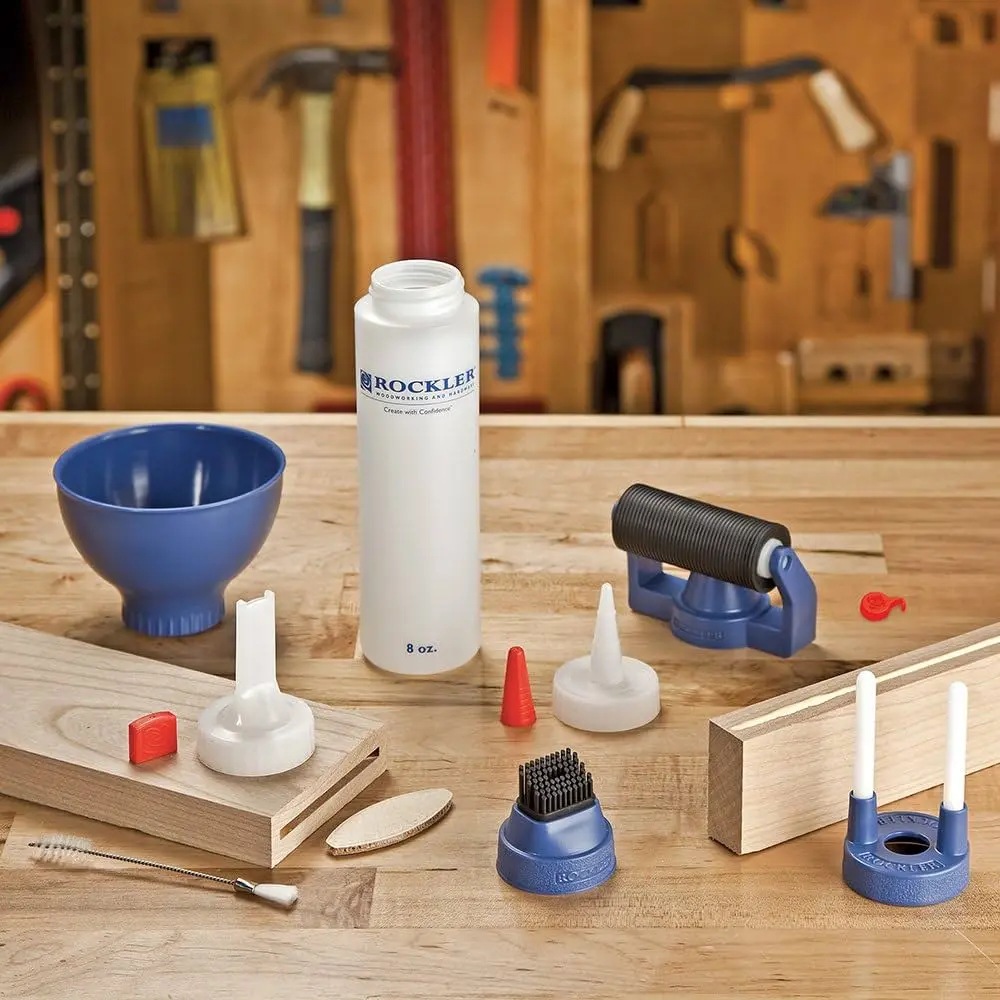
Description: A set of brushes, rollers, and spatulas designed to precisely apply wood glue, ensuring even distribution for strong bonds.
Uses: Perfect for intricate joinery, reducing mess, and ensuring a clean application of adhesive.
Varieties: Silicone and bristle applicators, each with pros like ease of cleaning but cons like varying application precision.
Typical Price: $10 – $30
Maintenance: Clean thoroughly after each use, and ensure brushes remain pliable for continued use.
Bench Cookies
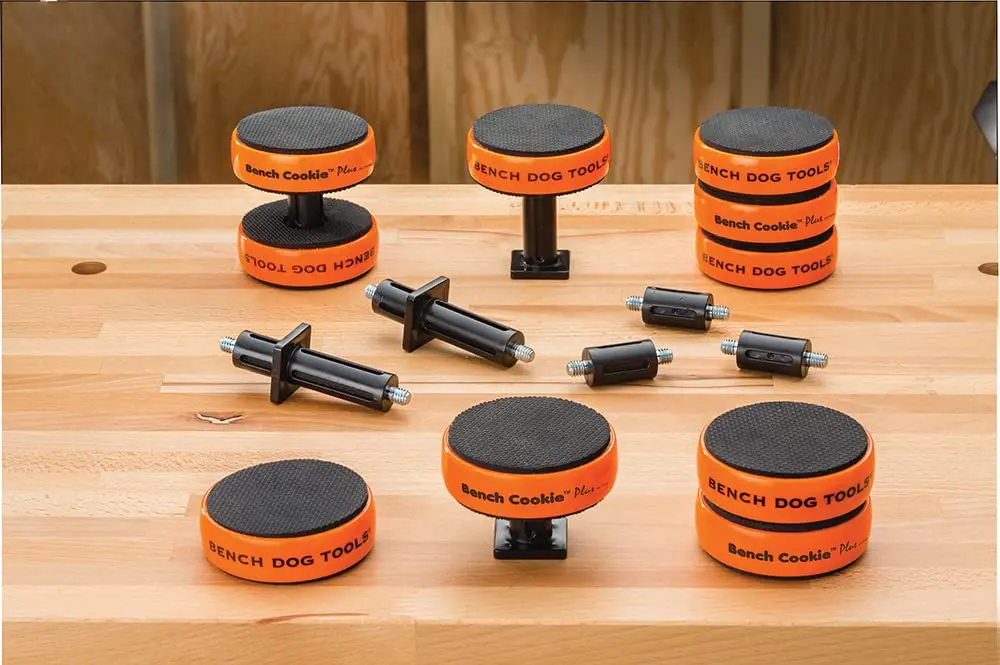
Description: Non-slip, non-marring accessories that lift your workpieces off the workbench, providing stability and preventing surface damage.
Uses: Creates a raised, non-slip surface for sanding, finishing, or routing without leaving marks.
Varieties: Different heights and materials, with pros like versatility but cons like varying weight capacities.
Typical Price: $10 – $30 (set of four)
Maintenance: Wipe clean, and periodically check for any wear on the non-slip material.
Digital Caliper

Description: A precise measuring tool with a digital display, allowing woodworkers to take accurate measurements for precise cuts.
Uses: Ensures exact dimensions for woodworking projects, reducing errors and improving overall accuracy.
Varieties: Stainless steel and plastic calipers, with pros like durability but cons like material-specific limitations.
Typical Price: $20 – $50
Maintenance: Keep the measuring surfaces clean, and replace the battery as needed.
Dust Collection System

Description: A system of hoses, filters, and a vacuum designed to collect and contain wood dust and debris during woodworking activities.
Uses: Improves air quality in the workshop, reduces health risks, and maintains a cleaner workspace.
Varieties: Portable and stationary systems, each with pros like mobility or greater capacity but cons like size differences.
Typical Price: $100 – $500 (entry-level models)
Maintenance: Regularly clean or replace filters, empty dust collection bags, and ensure proper hose connections.
In the grand tapestry of woodworking, accessories weave the finishing touches that transform your workshop into a haven of efficiency and precision. From keeping yourself clean with a trusty apron to ensuring accurate measurements with a digital caliper, these accessories are the unsung heroes that elevate your craftsmanship. So, whether you’re preventing splinters with bench cookies or maintaining a dust-free environment with a collection system, these accessories are the final strokes that turn your woodworking projects into true works of art. Happy accessorizing, woodcrafters!
12. Paints – Adding Colorful Flair to Wooden Canvases
In the realm of woodworking, paints are the vibrant palette that transforms raw wood into visually stunning masterpieces. Whether you’re looking to add a pop of color, protect against the elements, or enhance the natural beauty of wood grain, choosing the right paint can make all the difference.
Acrylic Paint
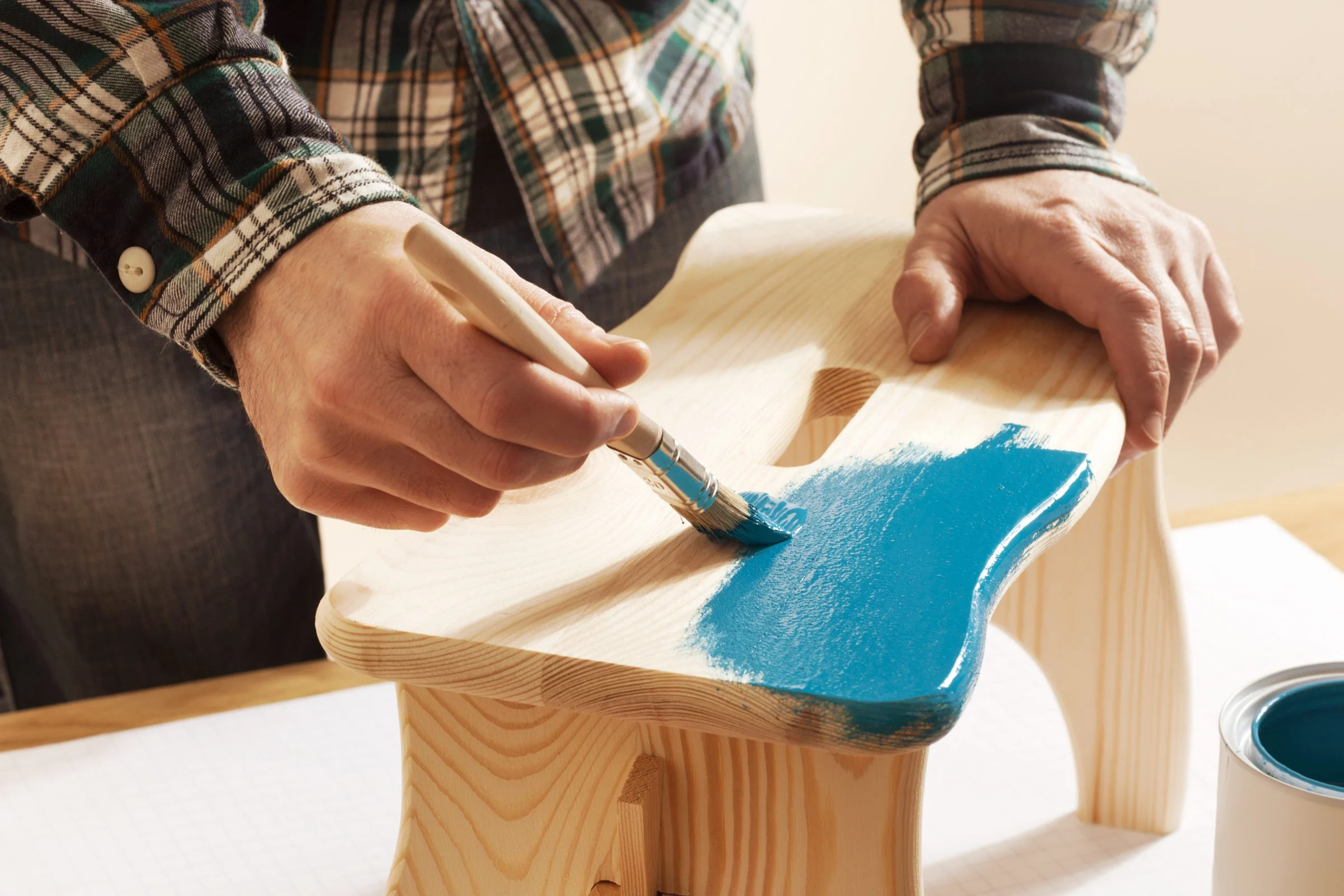
Description: Water-based paints with pigments suspended in acrylic polymer emulsion, offering a quick-drying and versatile option for wood surfaces.
Uses: Ideal for adding vibrant colors, creating intricate designs, and allowing for easy blending and layering.
Varieties: Matte and glossy finishes, with pros like quick drying but cons like limited durability for high-traffic items.
Typical Price: $3 – $10 per bottle
Maintenance: Clean brushes with water, and seal finished projects with a clear topcoat for added protection.
Latex Paint
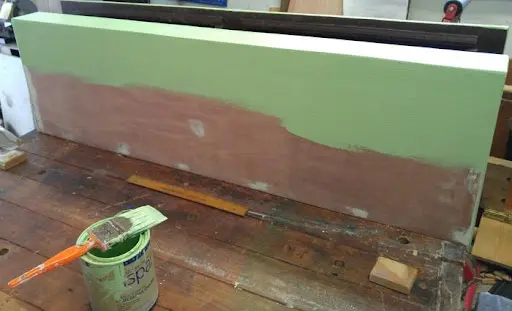
Description: Water-based paints containing latex as a binder, providing a durable and flexible finish suitable for wood projects.
Uses: Perfect for furniture, cabinets, and other wooden items, offering excellent adhesion and durability.
Varieties: Satin, semi-gloss, and gloss finishes, with pros like easy clean-up but cons like a longer drying time compared to acrylics.
Typical Price: $10 – $40 per gallon
Maintenance: Clean brushes with water, and use mild soap for easy removal of dried latex paint.
Oil-Based Paint
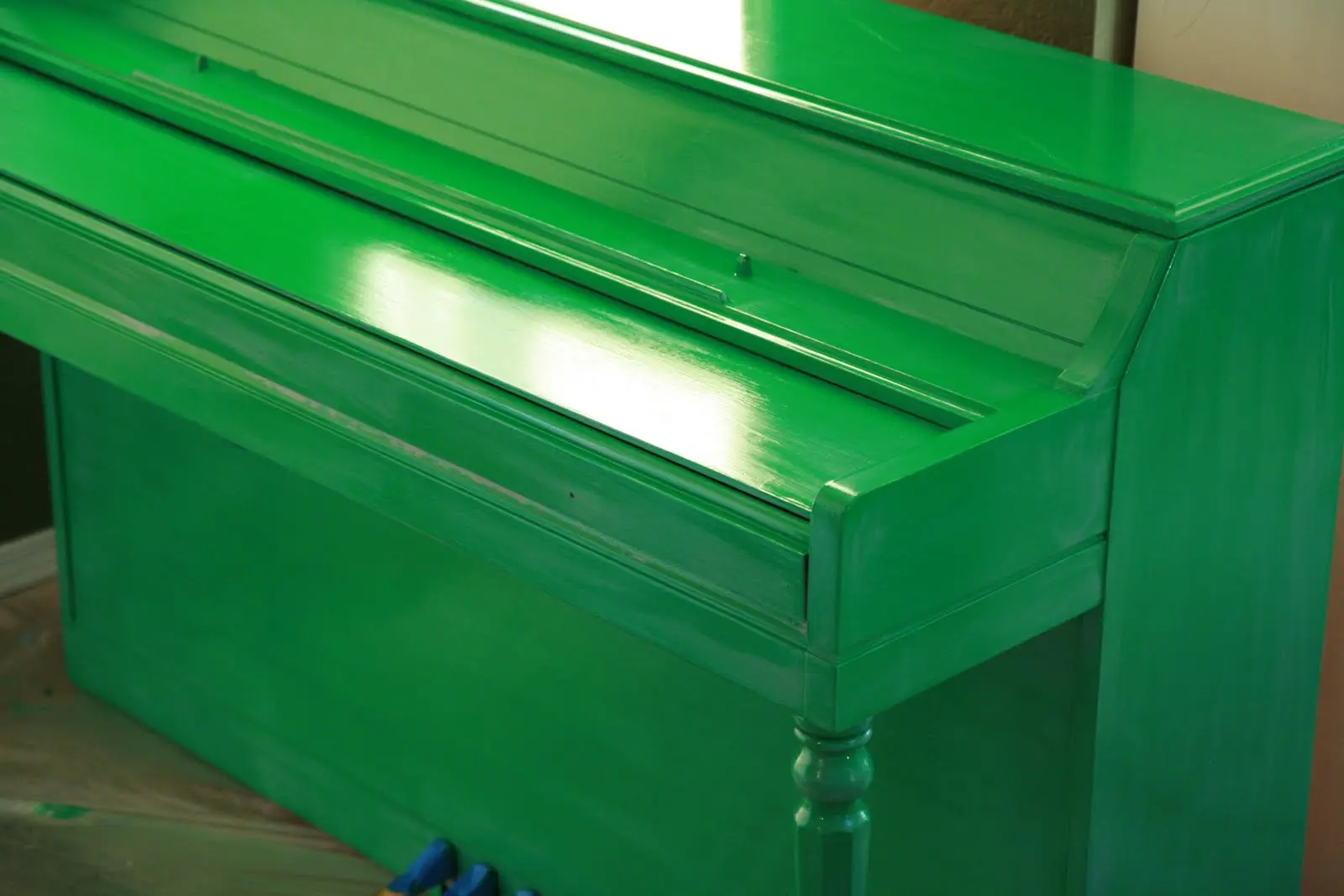
Description: Paints with a base of natural oils or alkyd resins, offering a durable and glossy finish for wood surfaces.
Uses: Suitable for high-traffic areas, outdoor furniture, and projects requiring a robust protective layer.
Varieties: Satin and high-gloss finishes, with pros like superior durability but cons like longer drying times and stronger odors.
Typical Price: $15 – $50 per gallon
Maintenance: Clean brushes with mineral spirits, and ensure proper ventilation when working with oil-based paints.
Chalk Paint

Description: Water-based paints with a matte, chalky finish, providing a vintage and distressed look to wooden surfaces.
Uses: Perfect for achieving shabby chic or farmhouse aesthetics, and requires minimal surface preparation.
Varieties: Limited color palette, with pros like ease of distressing but cons like fewer color options.
Typical Price: $10 – $30 per quart
Maintenance: Seal finished projects with wax or clear topcoat for added protection and durability.
Stain

Description: A transparent or semi-transparent coloring product that enhances the natural beauty of wood by penetrating the surface.
Uses: Ideal for showcasing wood grain, adding depth, and providing protection against UV rays.
Varieties: Oil-based and water-based stains, with pros like easy application but cons like longer drying times for oil-based options.
Typical Price: $10 – $30 per quart
Maintenance: Apply a clear topcoat for added protection, and reapply stain as needed for maintenance.
As you embark on your woodworking journey, don’t forget the magical touch that paints bring to the canvas of wood. From the bold strokes of acrylics to the enduring elegance of oil-based options, each type of paint adds its unique flair to your creations. So, whether you’re aiming for a vibrant burst of color or a subtle enhancement of wood’s natural beauty, the right paint can turn your wooden projects into true works of art. Happy painting, woodcrafters!
13. Cleaning Tools – Tidying Up the Sawdust Symphony
In the lively workshop orchestra of woodworking, cleaning tools play the role of the meticulous conductor, ensuring that every surface and instrument remains spotless. From sweeping away sawdust to maintaining the shine on your cherished tools, these cleaning companions are the unsung heroes that keep your creative space in harmony.
Shop Vacuum
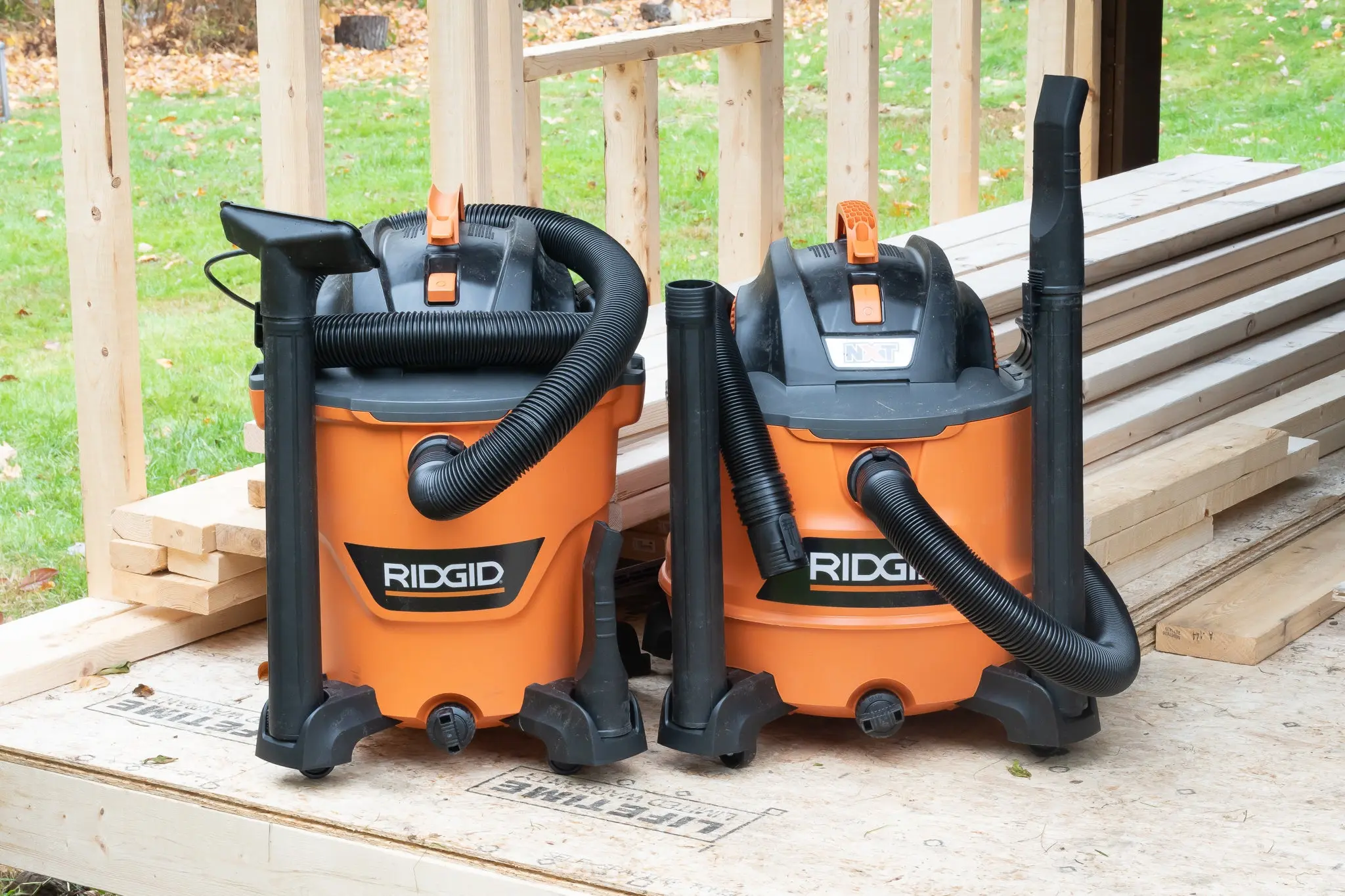
Description: A powerful vacuum designed to suck up sawdust, wood chips, and debris, maintaining a clean and safe workspace.
Uses: Essential for cleaning up after cutting, sanding, and other woodworking activities, preventing dust buildup.
Varieties: Wet/dry vacuums with different capacities, with pros like versatility but cons like varying noise levels.
Typical Price: $50 – $300
Maintenance: Regularly empty the dust collection bag or container, and clean or replace filters as needed.
Dustpan and Broom

Description: A classic duo for manual sweeping and collection of sawdust and wood shavings.
Uses: Perfect for quick cleanups, especially in areas where a vacuum might be cumbersome.
Varieties: Various sizes and materials, with pros like simplicity but cons like limitations for larger messes.
Typical Price: $10 – $30
Maintenance: Keep the broom bristles clean, and empty the dustpan regularly.
Compressed Air Canister

Description: A canister filled with compressed air for blowing away sawdust from intricate spaces and delicate tools.
Uses: Ideal for cleaning intricate woodworking machinery, electronic components, and delicate surfaces.
Varieties: Disposable and refillable canisters, with pros like precision but cons like limited air volume.
Typical Price: $5 – $20
Maintenance: Ensure the nozzle is clean, and store canisters in a cool, dry place.
Microfiber Cloths

Description: Soft and lint-free cloths designed for gentle cleaning and polishing of woodworking tools and surfaces.
Uses: Perfect for wiping down tools, removing dust, and applying finishes or polishes.
Varieties: Different sizes and thicknesses, with pros like gentle cleaning but cons like limited absorbency.
Typical Price: $5 – $20 per pack
Maintenance: Machine washable, but avoid fabric softeners to maintain lint-free properties.
Cleaning Brushes
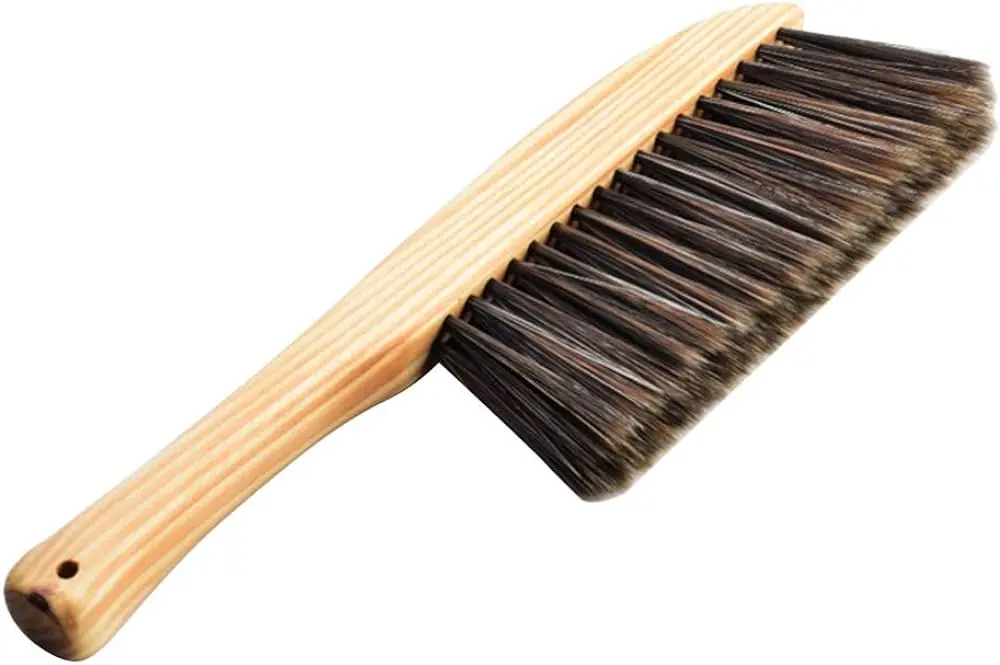
Description: Brushes with various bristle types for scrubbing away stubborn sawdust, dirt, and residues from tools and surfaces.
Uses: Essential for removing debris from intricate tool parts, ensuring optimal functionality.
Varieties: Wire brushes, nylon brushes, and brass brushes, each with pros like versatility but cons like potential scratching.
Typical Price: $5 – $15 per brush
Maintenance: Clean the brushes after use, and replace them if bristles become damaged or worn.
Tool Cleaning Solvent

Description: Solvents designed to dissolve and remove stubborn residues, adhesives, and finishes from woodworking tools.
Uses: Perfect for maintaining the cleanliness and functionality of cutting tools and blades.
Varieties: Citrus-based, mineral spirits, and specialized tool cleaners, each with pros like effectiveness but cons like potential toxicity.
Typical Price: $5 – $20 per bottle
Maintenance: Apply solvent sparingly, and follow safety guidelines for use and disposal.
In the vibrant world of woodworking, cleanliness is not just a virtue; it’s a necessity. These cleaning tools, from vacuums to microfiber cloths, ensure that your workshop remains a haven of creativity, free from the sawdust symphony’s lingering notes. So, as you wrap up your woodworking endeavors, give a nod to these diligent cleaning companions—they’re the true custodians of your woodworking sanctuary. Happy tidying, woodcrafters!
14. Bonus: Woodworking Tool Brands – Navigating the Craftsmanship Galaxy
In the vast universe of woodworking tools, choosing the right brand is akin to selecting your interstellar guide through the cosmos of craftsmanship. Each brand boasts its unique constellation of features, pros, and quirks, ensuring a diverse celestial tapestry for woodworkers. Let’s embark on a cosmic journey through some prominent woodworking tool brands, exploring their typical pros and cons.
i. Festool
Pros: Festool is synonymous with precision and innovation. Their tools often feature impeccable build quality, advanced dust extraction systems, and ergonomic designs. The company places a strong emphasis on system integration, providing a seamless experience for woodworkers who invest in multiple Festool products.
Cons: The astronomical cost of Festool tools can be a celestial hurdle for budget-conscious woodworkers. While the quality is top-notch, the price tag might feel like a journey to the outer reaches of your wallet.
ii. DeWalt
Pros: DeWalt is a reliable workhorse in the woodworking galaxy, known for its durability and performance. With a wide range of tools, from drills to saws, DeWalt caters to both professionals and hobbyists. Their tools often strike a balance between quality and affordability.
Cons: While DeWalt tools are durable, some users may find them lacking the finesse and precision offered by higher-end brands. Additionally, the sheer volume of available models can be overwhelming for those new to the woodworking cosmos.
iii. Bosch
Pros: Bosch is a stalwart in the woodworking constellation, offering a diverse array of reliable and well-engineered tools. They are known for their innovation, incorporating features like advanced electronic controls and vibration reduction technologies.
Cons: The vastness of the Bosch lineup can sometimes lead to confusion when choosing a specific tool. Some woodworkers may find the designs less aesthetically pleasing compared to other brands.
iv. Makita
Pros: Makita is a star in the power tool galaxy, renowned for its robust and long-lasting tools. Their extensive lineup covers a wide range of woodworking applications, and their cordless offerings often receive praise for their battery life.
Cons: While Makita tools are durable, some users might find their designs less refined compared to other high-end brands. The pricing can be mid-range, but certain specialized tools may still be on the pricier side.
v. Rockler and Woodcraft (Accessory and Specialty Brands)
Pros: Rockler and Woodcraft are celestial destinations for woodworking accessories and specialty tools. From router bits to jigs and fixtures, these brands cater to the specific needs of woodworkers, providing a treasure trove of accessories to enhance your projects.
Cons: As specialty retailers, Rockler and Woodcraft might not be the primary source for general tools, and their prices can be higher than those found in mainstream hardware stores.
vi. Ryobi
Pros: Ryobi stands as a gateway into the woodworking universe for many enthusiasts, offering a wide range of budget-friendly tools. They are known for their ONE+ battery system, providing compatibility across various tools.
Cons: While Ryobi tools are affordable, some users may perceive a compromise in build quality compared to premium brands. Professional woodworkers might seek more robust options.
Remember, the woodworking galaxy is vast, and personal preferences orbit differently for each woodworker. Whether you’re drawn to the precision of Festool or the reliability of DeWalt, each brand contributes its unique constellation to the cosmic tapestry of craftsmanship. So, as you navigate the woodworking cosmos, may your tools be as reliable as the North Star guiding you through the celestial wonders of woodworking!
15. Conclusion: Crafting Your Cosmic Toolkit – A Woodworking Odyssey
Embarking on a woodworking odyssey is a journey of discovery, where each tool in your arsenal becomes a celestial companion in the creation of masterpieces. As you chart your course through the cosmos of craftsmanship, assembling the perfect woodworking toolkit is a pivotal quest that varies with your experience level. Whether you’re a novice adventurer, a seasoned explorer, or a master of the woodworking cosmos, the key is to align your toolkit with your skills, aspirations, and the galaxies of projects you intend to conquer.
i. For Novice Adventurers
- Focus on Basics: Begin your odyssey with fundamental tools like a reliable circular saw, a set of chisels, and a versatile hand plane. These tools will form the foundation of your woodworking journey.
- Safety First: Invest in safety gear such as safety glasses, hearing protection, and dust masks. A safe journey ensures you can enjoy the wonders of woodworking without unnecessary risks.
- Guided Exploration: Consider acquiring entry-level power tools like a cordless drill and a jigsaw. These tools provide versatility while remaining user-friendly for those taking their first steps into the woodworking galaxy.
ii. For Seasoned Explorers
- Expand Your Horizon: As you gain confidence, expand your toolkit with specialized tools like a router, a miter saw, and a wood lathe. These tools open new dimensions in design and craftsmanship.
- Precision Instruments: Invest in measuring and marking tools like a combination square and a marking gauge. Precision becomes paramount as you tackle more intricate projects and joinery.
- Power and Control: Consider upgrading to high-quality power tools such as a table saw and a planer. These tools provide more power and control, elevating your woodworking capabilities.
iii. For Masters of the Woodworking Cosmos
- Mastering the Cosmos: For seasoned masters, consider adding advanced tools like a laser cutter to your arsenal. This high-tech marvel allows for intricate details and precision that align with your mastery of the craft.
- Fine-Tuning Mastery: Acquire fine woodworking tools like premium hand planes and specialized carving tools. Your projects now demand the utmost finesse, and these tools will be your instruments of perfection.
- Inspiration and Innovation: As a master, explore innovative tools and accessories to push the boundaries of your creativity. From advanced dust collection systems to state-of-the-art finishing tools, your woodworking cosmos is limited only by your imagination.
Regardless of your experience level, the essence of assembling the perfect woodworking toolkit lies in understanding your unique journey. Each tool you choose is a celestial ally, aiding you in the creation of wonders from raw wood. So, as you navigate the constellations of projects and push the boundaries of your craftsmanship, may your toolkit be a reflection of your passion, skill, and the boundless potential of woodworking. May your odyssey be filled with the joy of creation and the satisfaction of crafting your own woodworking legacy. Happy crafting, fellow celestial artisans!
- A Comprehensive Guide to Woodworking Tools: Over 35 Different Tools - January 5, 2024
- What is Woodworking? The Art of Wood in a Nutshell - January 4, 2024
- The Benefits of Using Wood in Plumbing Fixtures and Decor - December 29, 2023

